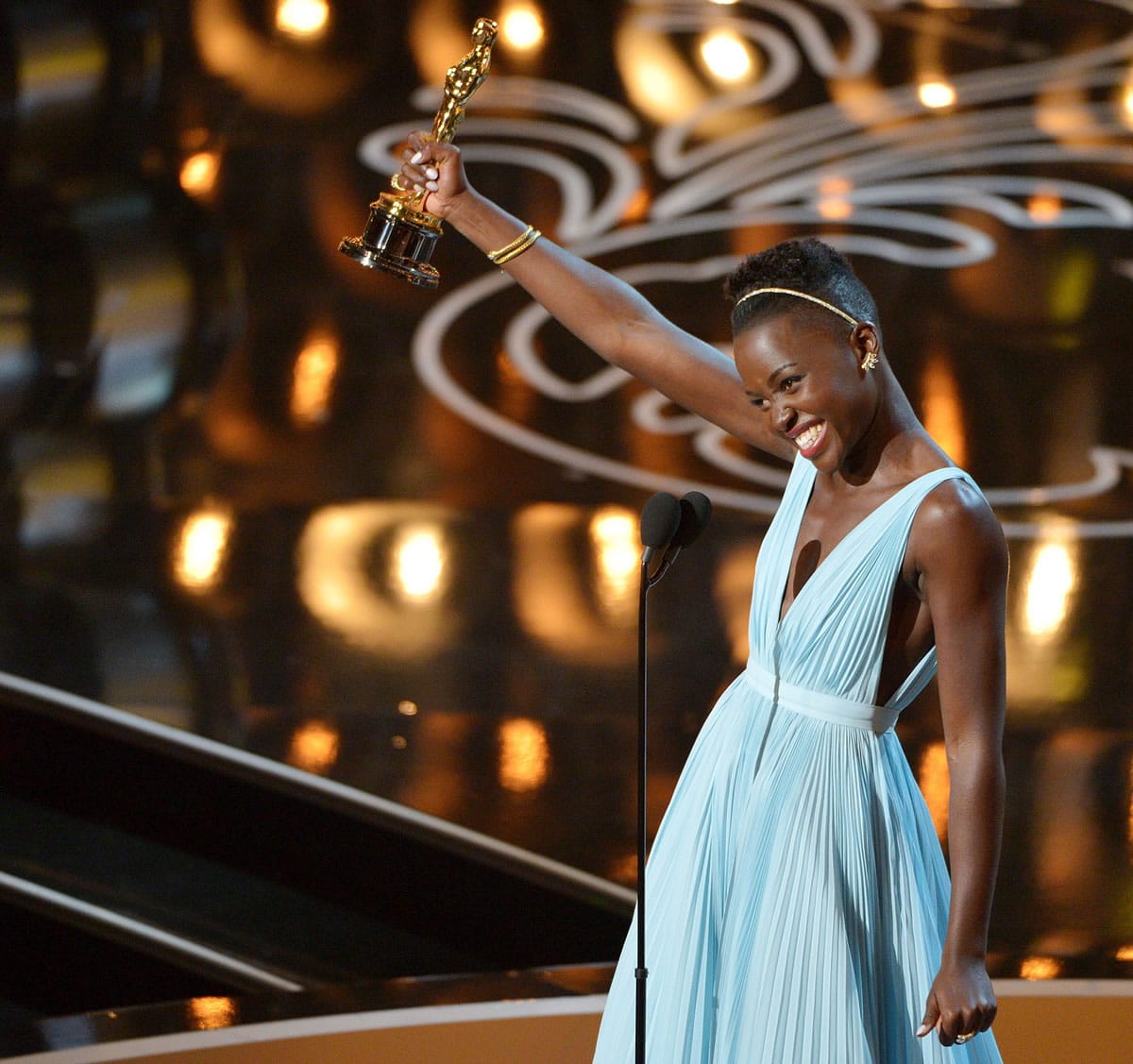NEW YORK — It was a year ago that Lupita Nyong’o, shortly before winning the Academy Award for best supporting actress in “12 Years a Slave,” gave a speech about what she called “dark beauty.”
Nyong’o, who so dazzled Hollywood and the Oscar-viewing public through awards season, spoke tenderly of receiving a letter from a girl who had been about to lighten her skin before Nyong’o’s success, she said, “saved me.” The letter struck Nyong’o because she recognized herself in that girl: “I remember a time when I too felt unbeautiful. I put on the TV and only saw pale skin.”
The Mexican-born, Kenyan-raised actress was a central part last year to an Academy Awards flush with faces uncommon to the Oscar podium.
What a difference a year makes.
This year’s Oscars repeat a stubborn pattern that has plagued the Academy Awards throughout its history: Whenever change seems to come, a frustrating hangover follows. “Every 10 years, we have the same conversation,” Spike Lee, a regular witness to the sporadic progress, has said.
Seldom have such fits and starts been starker than this Oscars, coming a year after a richly diverse Oscar crop. In tonight’s Academy Awards, all 20 acting nominees are white, a result that prompted some to declare that they would boycott this year’s ceremony.
The lack of nominations for “Selma” director Ava DuVernay and star David Oyelowo were a particular flashpoint, viewed by many as unjust oversights not only because they merited honoring, but because their absences furthered an ignoble Oscar history.
“I was surprised but then I wasn’t,” said Darnell Hunt, a UCLA professor and director of the Ralph J. Bunche Center for African American Studies, who co-authored a 2014 diversity report on the film and TV industries. “What we saw in terms of the nominations this year was business as usual. What we got was more or less an accurate reflection of the way the industry is structured and the way the academy is populated.”
An Associated Press survey of the academy’s voting history since the first Academy Awards in 1929 shows gradual progress but not nearly at a rate to match the ever-increasing diversity of the American public. In those 87 years, 15 black actors have won Oscars, four Latinos and three Asians, a record that doesn’t even speak to other categories such as best director, where only one woman (Kathryn Bigelow) has won.
The number of non-whites to be nominated for best actor or best actress has nearly doubled in just the last two decades, but the 9.4 percent of nonwhite acting nominees over the academy’s history is about four times less than the percentage of the nonwhite population.
Not all of this can be laid at the film academy’s feet, but some of it can. The 6,000-plus membership of the Academy of Motion Pictures Arts and Sciences was found to be 94 percent white and 77 percent male in a 2012 Los Angeles Times investigation.
Since becoming president of the academy, Cheryl Boone Isaacs has worked to diversify the organization’s ranks, though change comes slowly considering membership is for life.
But the academy is a reflection of the film industry; it can only reward the films that get made. What this year’s all-white acting nominees did was lay bare the enormous, hulking iceberg of the movie business’ diversity problems.



